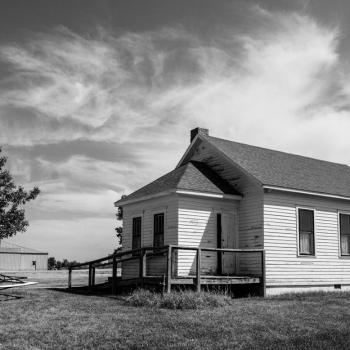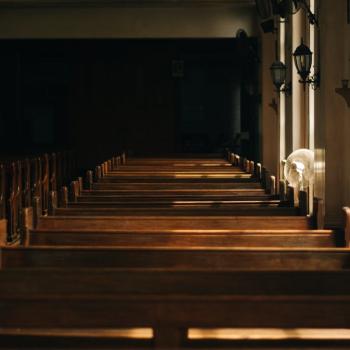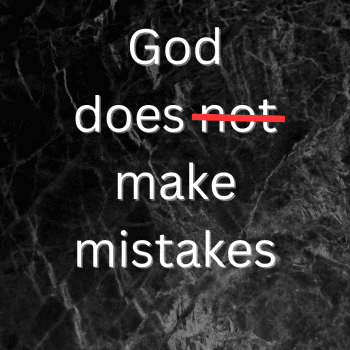
Currently, I work on an assembly line. It monotonous, long hours of doing the same thing over and over. In a way, it suits me, and it allows me to create things in my head, or wrestle with concepts or ideas. So, it’s like sitting in my lazy boy only standing up.
One other thing I do to pass the time is sing. I’ve realized I don’t know all the words to most songs that I remember, but I know a lot of bits and pieces. So, sometimes, I just hum most of the song or wander off into thinking about the artist. It works pretty well to make the time working more enjoyable.
Since I left organized religion, I haven’t missed the music terribly although I used to love it. I never cared about the hymn and contemporary songs debate–I just loved music and what it did to me. When we were going through our deconstruction, I noticed words or phrases in almost every song that didn’t sit right with me, so I’d stop singing right in the middle of church.
This is one example I was thinking about the other day on the assembly line. The tune is something that very easily sticks in my head, but the lyrics are at least somewhat troubling when I think about them deeply.
(From “Love Lifted Me”)
I was sinking deep in sin, Far from the peaceful shore
Very deeply stained within, Sinking to rise no more
But the Master of the sea, Heard my despairing cry
From the waters lifted me, Now safe am I
Love lifted me; love lifted me….
What kind of love would default to neglect?
In this hymn, apparently the Master of the Sea is neglectful and doesn’t notice that I am about to perish. The master doesn’t notice that I’m drowning until I cry out in despair. As a father, I don’t see how it would be a positive move to create an environment that was dangerous to my children, let him anguish in it until they almost perish, and then only rescue them if they cry out for help. If they drown, it’s their fault, and they cry out, then my “love” is the hero.
This just doesn’t sound like real love. Real love wouldn’t create traps that “stain” people “deeply”, then make a narrow road of escape that the traveler must discover or be doomed. Realistically, for the song, they also have to beg for it to be noticed.
Why would the Master create a sea that inflicts trauma?
Religion, no matter the flavor, generally honors a reasonable amount of suffering. We see it as a badge of honor to suffer with Christ or whoever our hero is. But this situation (the sinking sea) is an identity assigned to all people (all have sinned) and we picture it as a quagmire of sin that stains us and takes us down. It creates the shameful picture of eventual doom for all people. If this song, and others, is the real story, then it means the Master lets people wonder out into the sea to experience trauma, only to be possibly rescued by love.
But what kind of love creates a system that induces trauma. Churches use these messages (maybe unintentionally) to sell their product of salvation. The customer (parishioner) recognizes their shame (deeply stained) and buys the product in hopes that it will release them from the trauma of almost drowning. But it doesn’t. The trauma of especially evangelical Christianity remains.
What are we safe from?
This is where the song totally breaks down even more for me. It states that after the Master lifts me out of the water, I am safe (Safe am I). But who / what am I safe from? I am safe from the Master who created the situation in the first place. He made the sea traumatic and allowed me to wander out into it, just narrowly rescuing me after I experienced trauma.
He didn’t remove the sea and me and others can theoretically wander back in.
If we are going to reimagine church, we can’t just change a few things and hope it will be better. We may have to change EVERYTHING. The way we do church has to be dramatically different and we will probably have to write new songs. I’m not the person to do that, but I’m excited to hear that we would even consider it.
I don’t know all the answers to things like this, but I do think we need to discuss them.
Be where you are, be who you are, be at peace,
Karl Forehand













